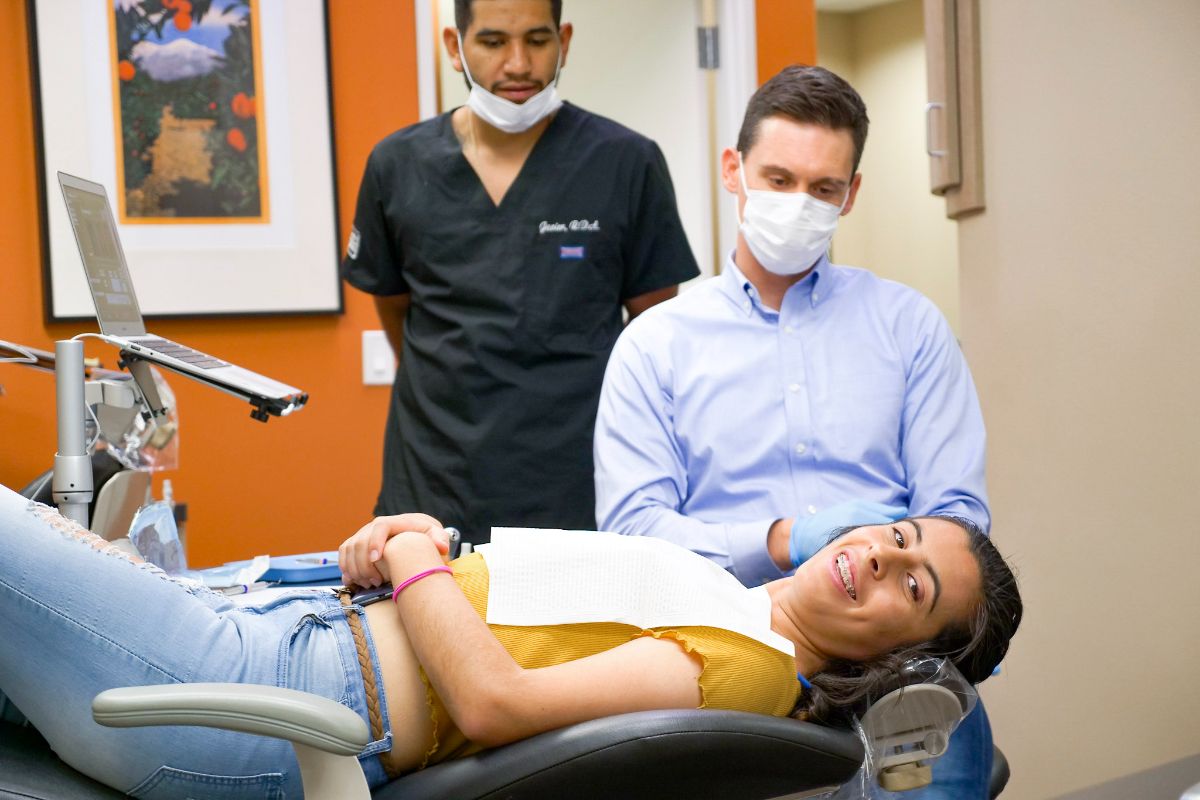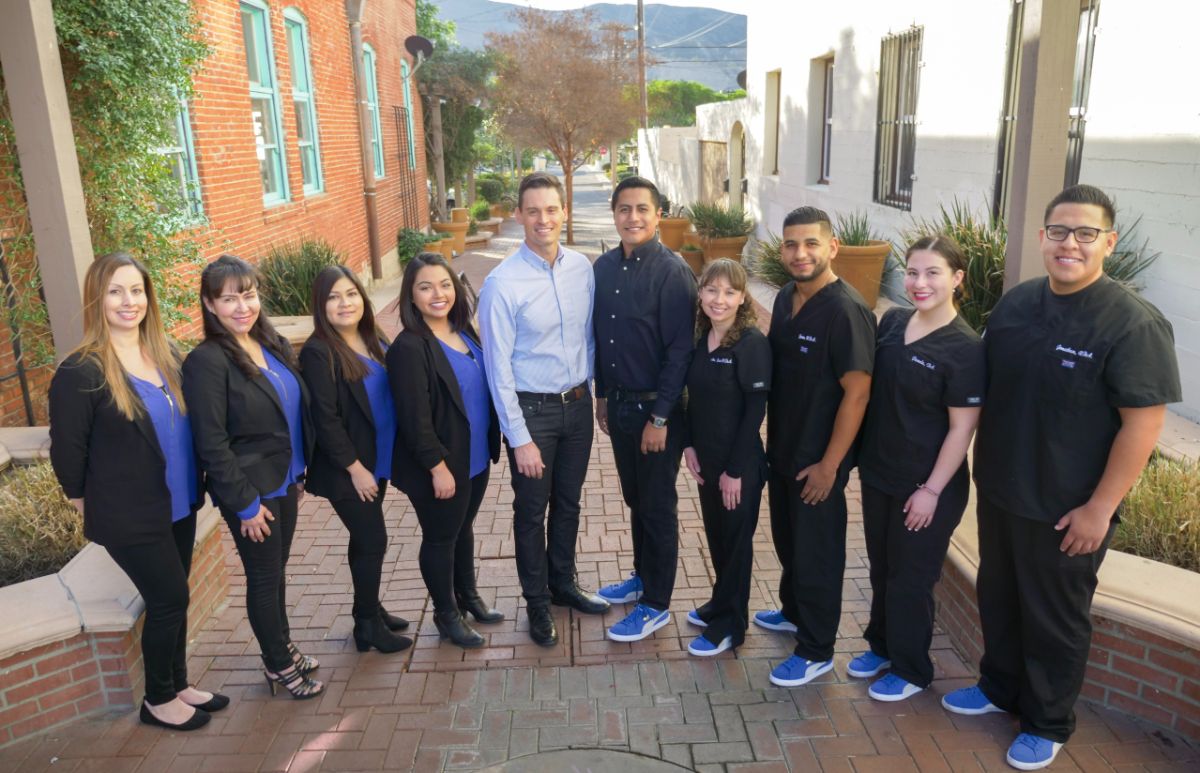Seeing your child show signs of jaw pain can be concerning. Whether you’ve noticed them rubbing their jaw or digging into their meals with less gusto, seeing your child hurting is never easy. Jaw pain is fairly common in both children and adults, and in younger kids, it can often stem from a misaligned bite. The technical term for a misaligned bite is a malocclusion, and the good news is, they can be corrected! Whether it stems from a misaligned jaw or another orthodontic issue, the expert team here at the office of Dr. Jared Lee can identify and treat your child’s jaw pain, leaving them with an aligned bite and healthy smile! Keep reading to learn more.
How does a misaligned bite cause jaw pain?
Most kids have a pretty big appetite and love to chow down on their favorite foods. Every time they eat, speak, and even breathe, they use their jaws, which are extremely strong muscles. In fact, chewing can generate up to several hundred pounds of force per square inch! If a child’s jaw is misaligned, those powerful jaw muscles won’t bite down evenly and, over time, can create an imbalance or place significant pressure on certain teeth.
In an attempt to correct this, the jaw muscles will often overcompensate, which in turn can lead to a sore, achy jaw. Severe jaw pain can have a knock-on effect. Not only does it make eating uncomfortable, but it can also interfere with the child’s speech, breathing, and sleeping. The joint where the upper and lower jaw meets is complex, so improper functioning can lead to chronic pain in some children, even when their jaw isn’t moving.
Think about it this way: if you wore a sandal on one foot and a high heel on the other, your back and legs would not be happy with you at the end of the day! That misaligned balance would cause aches and pains even after you took your shoes off. A bad bite works similarly, except there’s no shoe to remove. That means suffering with these symptoms every day or finding a way to treat the problem.

What causes a misaligned bite? How can it be treated?
There are several reasons your child might develop a malocclusion. Bad bites or crooked teeth are often the result of genetics, but this can also occur with:
- mouths that are too small for their teeth
- upper jaw and lower jaws that are different sizes
- the early loss of baby teeth
- jaw injuries
- extended thumb sucking or pacifier use
- prolonged bottle use
- tongue thrusting
While you may not always be able to prevent a misaligned bite, there are steps you can take to correct it! Because every child’s smile is unique, there is no one-size-fits-all treatment plan. When you schedule an evaluation for your child with our Oxnard or Santa Paula offices, Dr. Jared Lee will perform an oral examination and assess your child’s teeth and jaw.
If treatment is required, we’ll create a customized treatment plan based on your child’s specific needs. This may include the use of one or more orthodontic appliances, something we’ll discuss with you in detail during their visit. Some of the most common treatment options include the following.
Braces
Traditional braces tend to be the most common way to correct a malocclusion. With braces treatment, brackets are affixed to the front or back of the teeth and connected with a flexible wire. The wire is regularly tightened throughout the treatment process, slowly moving the teeth and jaw into more optimal positions. We may also use elastic bands to apply pressure that will achieve better alignment. Once treatment is complete, we’ll provide the patient with a retainer that will help keep their new smile in place.
While metal braces are considered to be “traditional,” there is nothing “traditional” about our metal braces. Our advanced braces are made for efficient tooth movement and optimal patient comfort, and can be customized with a variety of colored ties.
Upper jaw expander
Upper jaw expanders are an orthodontic appliance we can use to correct an underbite. The wire-frame device fits across the upper palate, and a special key is used to widen the expander a very small amount each night. Over time, this will widen the upper jaw and bring the bite into alignment.
Jaw surgery
In rare instances, jaw surgery may be required to correct a misaligned bite, although this is typically reserved for patients who are struggling to perform everyday functions like eating, sleeping, and speaking. Thankfully, we can usually correct alignment issues in children before they get serious enough to need surgery.
What are the benefits of correcting a misaligned bite?
Correcting a misaligned bite can relieve jaw pain, but there are other benefits to consider as well! Your child’s teeth will be easier to clean, which reduces the risk of developing tooth decay and cavities. They’ll be less likely to chip their teeth or lose them prematurely, and they’ll be able to speak with more clarity. Appropriate treatment will help increase your child’s self-confidence and give them a smile they’ll be proud to share with everyone around them!

Find your child’s best smile at the office of Dr. Jared Lee
Correcting your child’s misaligned bite is an important investment, and one they will reap the rewards of for years to come. With a variety of effective and affordable treatment options available, it’s never been easier to get your child’s smile off to a great start! Our goal here at the office of Dr. Jared Lee is to improve your child’s oral health, align their bite, and enhance their self-confidence. Our treatment options can do all three! To learn more about correcting misalignments and achieving a healthier smile for your child, get in touch today to schedule a FREE consultation with our offices in Santa Paula and Oxnard.

